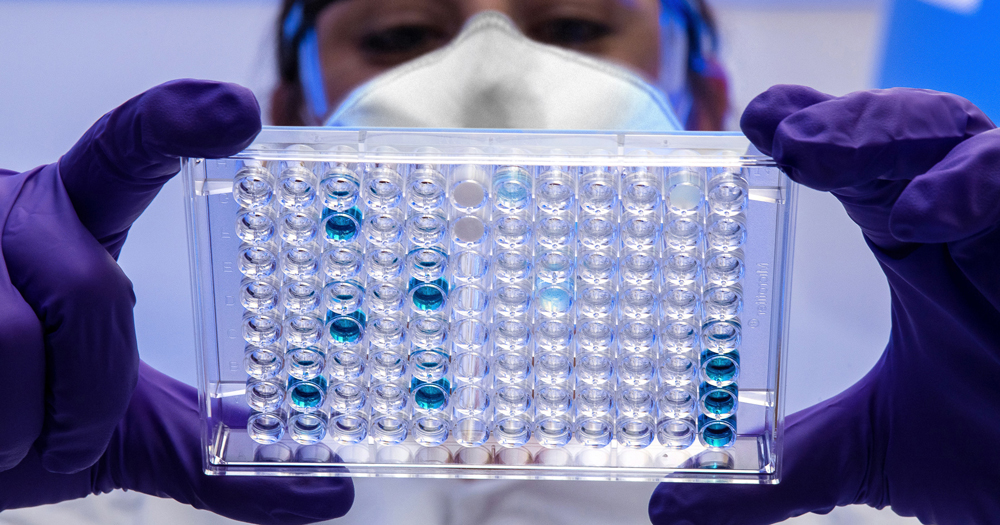The UN AIDS agency (UNAIDS) denounced some reporting of the monkeypox cases as “racist and homophobic” in the wake of some media outlets portraying the virus as a sexually transmitted disease associated with gay and bisexual men who have sex with men (gbMSM).
The Joint United Nations Programme on HIV/AIDS (UNAIDS) strives to build a world with zero new HIV infections, zero discrimination, and zero AIDS-related deaths. After having witnessed some commentary on the new monkeypox cases reported in various parts of the world where the virus is not endemic, the UN agency expressed concern about some of the imagery and language used, particularly in regards to the portrayal of LGBTQ+ and African people.
The UN warned that such reporting could exacerbate stigma and undermine the response to the virus outbreak, much like it happened during the AIDS crisis. They thus urged media and governments to use caution when reporting on the monkeypox cases and to “respond with a rights-based, evidence-based approach that avoids stigma.”
Since May 13 this year, an outbreak of monkeypox has been reported in Europe, the US, Australia, and other places where cases are usually not detected. According to the World Health Organisation (WHO), there are 92 confirmed and 28 suspected cases of monkeypox in 12 UN member states (data adjourned till May 21). As of today, the HSE has informed us that there hasn’t yet been an outbreak of the virus in Ireland, but that they are actively monitoring the situation.
"We know that whenever you exacerbate stigma about any group, what you do is you discourage people from seeking healthcare and the treatment and support they need," says @benphillips76 speaking with @TVNaga01 on @BBC5live.
Listen to the full interview ?? pic.twitter.com/ZqJMow5rh5
— UNAIDS (@UNAIDS) May 23, 2022
Because a considerable number of the monkeypox cases have been detected among gay, bisexual, and other men who have sex with men, some media reporting associated the virus with such groups and suggested that it might be sexually transmitted. However, there is no evidence that monkeypox is sexually transmitted as the virus is most likely spread person-to-person via close physical contact.
For such reason, the UN denounced this type of reporting as homophobic. UNAIDS deputy executive director, Matthew Kavanagh commented by saying that “Stigma and blame undermine trust and capacity to respond effectively during outbreaks like this one”.
“Experience shows that stigmatising rhetoric can quickly disable evidence-based response by stoking cycles of fear, driving people away from health services, impeding efforts to identify cases, and encouraging ineffective, punitive measures.” he added.
Other than exacerbating stigma towards gay and bisexual men, this type of reporting is dangerous for everyone, as it might hinder a prompt response to the virus outbreak. The Gay Health Network urged the media to use caution, saying: “Homophobic or racist stigmatising is unhelpful and unwelcome. GHN encourages the media to carefully consider how they report on monkeypox. GHN is working closely with HPSC and MPOWER on tailoring information for our community.”
The UK Health Security Agency has recently recommended to those who have been a close contact with a monkeypox case to isolate themselves for 21 days. For more information about the disease, visit the web pages of these sexual health services for men who have sex with men: MPOWER, GMHS , and MAN2MAN.
© 2022 GCN (Gay Community News). All rights reserved.
Support GCN
GCN is a free, vital resource for Ireland’s LGBTQ+ community since 1988.
GCN is a trading name of National LGBT Federation CLG, a registered charity - Charity Number: 20034580.
GCN relies on the generous support of the community and allies to sustain the crucial work that we do. Producing GCN is costly, and, in an industry which has been hugely impacted by rising costs, we need your support to help sustain and grow this vital resource.
Supporting GCN for as little as €1.99 per month will help us continue our work as Ireland’s free, independent LGBTQ+ media.

comments. Please sign in to comment.